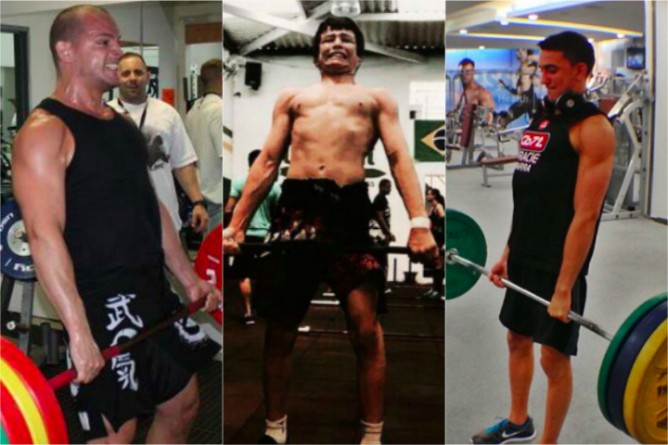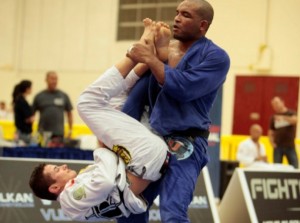Strength, one of the attributes that most BJJ athletes are actively trying to improve upon. An attribute that is required to be at decent levels at least when we’re talking about competitions and, generally, the more you have, the better your chances in competitions and sparring. However, is it always a good thing to have it? Is it always a good thing to use it to its maximum?
Have you ever heard somebody tell you after sparring something like “Wow, you’re really strong!”?
Did you feel really happy that he told you that?
Well, maybe you shouldn’t have. What that usually means is that you out-muscled your way out of tough positions and used it way more than you should have.
There was a video a few years ago on the No Gi worlds, where Leandro Lo faced DJ Jackson. Lo ended up winning by a small margin and after the match, he stood next to Jackson and said: “He’s really strong.”. Jackson looked away and told the camera: “When someone says that, it’s not good.”
Backhanded compliment: What might at first sound like a compliment but could/should really be taken as an insult when considered in its entirety.

Figure 1. Strength. Desirable but sometimes hinders learning.
In Jiu Jitsu, strength is a really desirable attribute, however, especially in beginners, it can hinder progress. Strength can be used in grappling to cover for technical deficiency. A lot of examples can be given. Think of prying the arm away in an armbar, trying to kimura someone, etc. In most of techniques, strength can give you the edge required in order to successfully perform them, even if technical-wise the execution wasn’t that good. By constantly relying on physical attributes to overpower your opponent, you will stop focusing on the technical details required to perform the move. Why bother with learning how to break a grip in a technical way, when you can just pry it open by pulling on it. In time, this will accumulate and cause you to have a much lower progression rate than you might have had otherwise. It’s especially important in beginners and heavyweights. Heavyweights will naturally have an easier time, due to their weight and strength difference and will be able to smash newcomers of smaller or much smaller weight classes.
However, out-powering your training partners all the time is not a smart way to go about your training. A unwritten rule says that when competing, you will at one point meet someone who is stronger than you. When that happens and your strength and conditioning will fail you, you will have to fall back on technique superiority, but how are you supposed to be technically superior when you haven’t dedicated yourself to being technical?
Let’s get something clear, it’s your strength and it’s perfectly fine to use it, but past a point you will damage your ability to learn Jiu Jitsu and you might even hurt your partners in the process.
So you just realized you are guilty of doing this and you are wondering what you should do?
First of all you will have to drop your ego and accept that you have to start losing some. Why? Because the solution to this is obviously to start using less strength. It’s generally ok to use a similar level or slightly above your opponent but if you really want to progress, try using less strength than your opponent.
When you start doing this, things will start to change a bit for you. You will notice that your techniques aren’t as good as you thought they were, you will notice that your opponent suddenly is able to put you into tough spots and you aren’t as skilled as you previously thought. You will have to start looking at your technique and see where you’re lacking, what details you’re missing, etc.
In time, this will make your Jiu Jitsu much sharper and technical. There is a saying in Jiu Jitsu “If you want to learn Jiu Jitsu well, learn it from a small person.”. Now, there are certainly a lot of heavyweights with extremely technical jiu jitsu gameplans and techniques, but generalizing, the lower an athlete is in weight, the more technical he has to be in order to cover that gap.

Figure 3. Caio Terra, one example of athlete who has proven that technical superiority can win against more powerful opponents.
So how to go about this? Just set an objective for yourself. Take a full month in which you will never use as much strength as your opponent. See how your sparring changes from before. One way to gauge this is to always ask yourself if you would be able to finish this technique if you didn’t use as much strength. Examples: Could I pry off this arm if I didn’t use my strength?
Could I sweep him if I used less strength?
Could I still finish the choke if I used less strength?
If the answer is no, then you need to slow down and start to really look at your Jiu Jitsu .
Ramsey Dewey and weightlifting coach/BJJ practitioner Zack Telander discuss why martial artists often hate strong people:
The post Why Do Martial Artists Hate Strong People? appeared first on Bjj Eastern Europe.
